Cashews are a kidney-shaped nut that is eaten all around the world. They’re known to be highly nutritious and calorie-dense with delicious flavor.
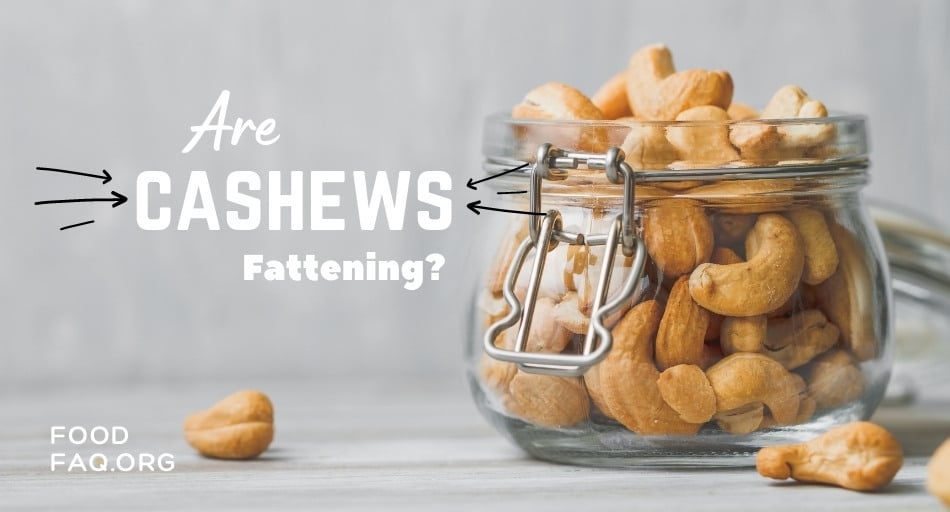
A large portion of calories in cashews comes from fat, which often makes people think that eating them can lead to weight gain.
But is there any truth to it? Are cashews fattening or safe to consume on a diet with a calorie deficit?
Table of Contents
Are cashews fattening?
While most nuts contain fat, they’re actually not fattening, and this applies to cashews as well. While most calories in cashews come from fat, this fat is heart-healthy and good for your health.
Cashews are also loaded with other important minerals and vitamins, making them a wonderful addition to a healthy as well as weight loss-friendly diet.
Are cashews high in calories?
A one-ounce serving of dry-roasted cashews provides you with 161 calories. Oil-roasted cashews contain around the same number of calories – 164.
While this is a lot for a single serving of this size, cashews are very filling, thanks to the fat and fiber they contain.
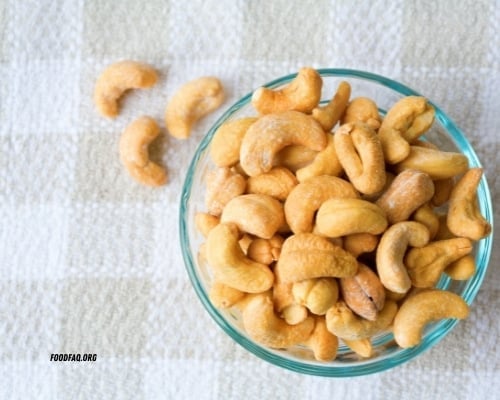
As a result, you can safely add some cashews to a diet that’s aimed at weight loss without risking gaining weight.
The only thing to keep in mind is that it’s very easy to eat too many cashews in one sitting.
Because of that, if you’re diet is aimed at weight loss, you should be careful about adjusting your serving sizes to avoid taking in too many calories.
One way you can do that is to add some cashews to a salad loaded with fiber-rich veggies or buy pre-packed cashews that come in a single serving.
Are cashews healthy?
Cashews contain quite a lot of calories, but they actually come from good macronutrients.
This type of nuts is rich in unsaturated fats, which are linked to a lower risk of premature death and heart disease.
The healthy fats in cashews can also lower the levels of ‘bad’ cholesterol and prevent plaque buildup in your arteries.
Because of that, even though they’re caloric, cashews can help prevent various cardiovascular conditions from developing.
Just one ounce of dry-roasted cashews provides you with over 30% of your daily recommended need for copper.
This mineral works together with iron, helping your body form red blood cells. It’s also essential for healthy bones, blood vessels, nerves, and immunity.
Some studies also indicate that a diet full of copper-rich foods can prevent cardiovascular issues as well as reduce your risk of osteoporosis.
Most nuts, like cashews, are a great source of this mineral, so adding them to your diet is beneficial.
Cashews are also loaded with powerful plant compounds, including antioxidants. These can help flush out harmful free radicals from your body, preventing oxidative stress and damage to your cells.
Additionally, the antioxidants found in cashews help reduce inflammation in your body, thus fighting against the development of various chronic conditions, such as diabetes, cancer, and heart disease.
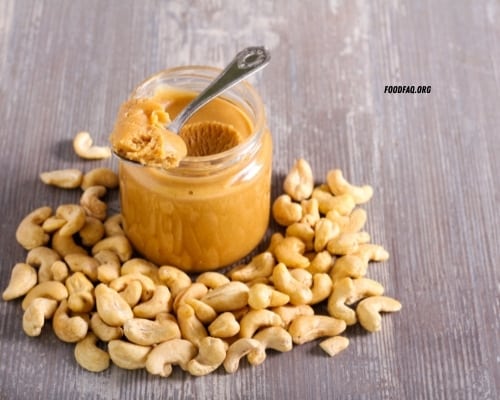
Getting enough antioxidants from your diet is extremely important as your body cannot produce them on its own. So, loading up on foods like cashews is a great idea.
Other studies also show that eating cashews can help you reduce the symptoms of type 2 diabetes.
Cashews are a great source of fiber, which prevents blood sugar spikes and protects you against diabetes.
Eating cashews can also lower insulin resistance and stop you from consuming too many calories, which both increase your risk of diabetes.
In addition, cashews don’t contain too many carbs and sugar, making them a healthy addition to a diet that should limit foods high in these nutrients.
Can you eat cashews on a weight loss diet?
Even though cashews are rather caloric and high in fat, eating them has actually been linked with weight loss.
This is partially because your body only absorbs a portion of the calories found in cashews while the rest is flushed out of your body.
As a result, you’re taking in fewer calories, which contributes to weight loss. Cashews are also low in net (digestible) carbs, which helps reduce your appetite and prevent overeating, further helping with weight loss.
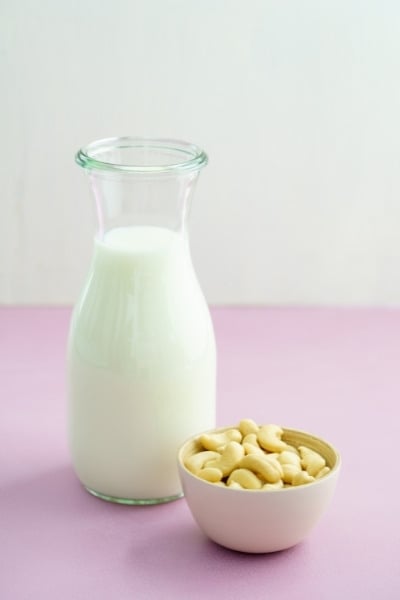
In addition to that, cashews are a great source of fiber and protein, which are two nutrients that help you stay full and satisfied after eating.
This prevents overeating and curbs your appetite, contributing to healthy weight loss. Protein also helps you build lean muscle mass that boosts your metabolism, increasing the number of calories your body’s burning.
So, with all of these benefits, eating some cashews on a weight loss diet can actually be helpful.
Is cashew milk fattening?
One cup of cashew milk contains 57 calories, which makes it a rather low-calorie beverage. It contains some fiber and protein, making it a great replacement for dairy milk if you can’t or choose not to drink it.
Cashew milk also provides you with some important minerals that contribute to good health and can help you with healthy weight loss.
So, as long as you don’t drink too much of it too often, cashew milk can be a great addition to a balanced diet with a calorie deficit.
Is cashew butter fattening?
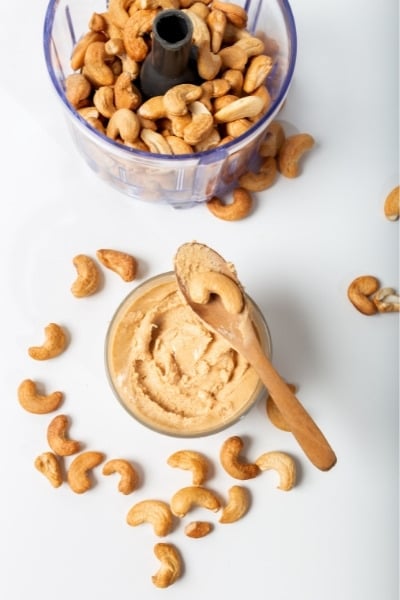
One tablespoon of cashew butter contains around 94 calories. Cashew butter is slightly less nutritious than plain roasted cashews.
As a result, you should be careful about consuming too much of this type of nut butter, especially if your goal is weight loss.
In addition, most people tend to consume more than one tablespoon in a single sitting, which means that you’re very likely to take in even more calories.
Because of that, cashew butter tends to be rather fattening, particularly when consumed in large quantities.
Conclusion
Cashews contain quite a large number of calories, but eating them can actually help you lose instead of gain weight.
This is because they provide you with heart-healthy fats, minerals, and other compounds that improve your digestive system and boost your metabolism.
So, if you’re looking to lose some weight, adding cashews to your diet can be incredibly beneficial.
